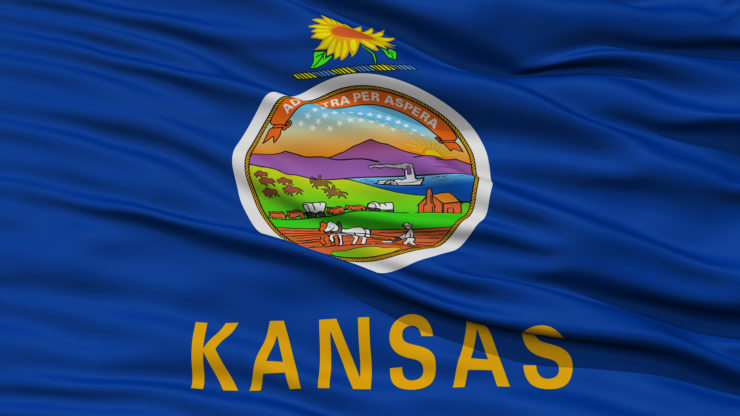
29 Sep Hemp-CBD Across State Lines: Kansas

The Agriculture Improvement Act of 2018 (“2018 Farm Bill”) legalized hemp by removing the crop and its derivatives from the definition of marijuana under the Controlled Substances Act (“CSA”) and by providing a detailed framework for the cultivation of hemp. The 2018 Farm Bill gives the US Department of Agriculture (“USDA”) regulatory authority over hemp cultivation at the federal level. In turn, states have the option to maintain primary regulatory authority over the crop cultivated within their borders by submitting a plan to the USDA.
This federal and state interplay has resulted in many legislative and regulatory changes at the state level. Indeed, most states have introduced (and adopted) bills that would authorize the commercial production of hemp within their borders. A smaller but growing number of states also regulate the sale of products derived from hemp.
In light of these legislative changes, we are presenting a 50-state series analyzing how each jurisdiction treats hemp-derived cannabidiol (“Hemp CBD”). Each Sunday, we summarize a new state in alphabetical order. Today, we turn to Kansas.
In 2018, Kansas legislators enacted the Alternative Crop Research Act (“Act”), which authorizes the cultivation of industrial hemp for research purposes only and is overseen by the Kansas Department of Agriculture (“KDA”). To implement the Act, the KDA issued regulations that went into effect on February 8, 2019.
In May 2019, Governor Jeff Colyer signed into law Senate Substitute for House Bill (“HB”) 2167, which authorizes the commercial sale of hemp and hemp products containing less than 0.3% THC, pursuant to the 2018 Farm Bill, and ensures that hemp and hemp products are no longer treated as controlled substances.
Consequently, the Act was officially renamed the “Commercial Industrial Hemp Act” but will remain in effect until the KDA establishes the commercial production of industrial hemp in the state or a federal plan by the USDA allowing for the cultivation and production of commercial industrial hemp is adopted, whichever occurs first.
With this in mind, the following sections address the current rules under the Act and the future regulations under HB 2167.
State License or Permit Status
- Act: Currently, the KDA requires each individual who is growing, processing, selling and distributing hemp to obtain a license. Note that the rules do not provide whether a license is required to manufacture, sell and distribute Hemp-CBD products. However, in May 2018, Governor Jeff Colyer signed legislation amending the state’s criminal code to exclude CBD from the state’s definition of marijuana, which means that the sale of Hemp-CBD products is authorized if the oil contains no THC.
- HB 2167: Although HB 2167 gives the KDA the authority to monitor and regulate the commercial production of hemp within the state, the new law does not provide whether a license will be required to sell and distribute Hemp-CBD products. The new law is also unclear about whether certain categories of Hemp-CBD products that may be lawfully manufactured, marketed, distributed, or sold in the state. HB 2167 expressly bans Hemp-CBD smokable products as well as teas, liquids, solids, and other hemp products intended for human consumption containing any ingredient derived from hemp and prohibited by the Kansas Food, Drug, and Cosmetic Act. However, the new law also states that it does not explicitly prohibit the use of Hemp-CBD ingredients, such as CBD oil, in such hemp products.
Possession
Kansas does not have Hemp-CBD laws or medical marijuana laws. However, as previously stated, Kansas law removed CBD products free of THC from the state’s definition of marijuana. Unlike CBD-exemption laws enacted in other states, Kansas law permits all adults, not just those with qualified medical conditions, to possess and purchase CBD products containing no THC.
Transportation
- Act: The KDA requires individuals who transport hemp to obtain a research distributor license. However, the rules do not provide whether a license is required to transport Hemp-CBD products that contain THC.
- HB 2167: Neither HB 2167 nor the proposed rules from KDA address this issue.
Marketing/Advertising Regulations
- Act: The Act does not impose restrictions on marketing or advertising of hemp or hemp products under the research program.
- HB 2167: The new law bans the marketing of all Hemp-CBD products prohibited in the statute and listed above.
In enacting HB 2167, Kansas showed a desire to provide the Kansas hemp community with an opportunity to fulfill its economic potential. However, to reach this objective, the state will need to clarify its policies regarding the manufacture, distribution, marketing and sale of Hemp-CBD products.
Stay tuned to the Canna Law Blog for developments on hemp and Hemp CBD in Kansas and other states across the country. For previous coverage in this series, check out the links below:


Sorry, the comment form is closed at this time.